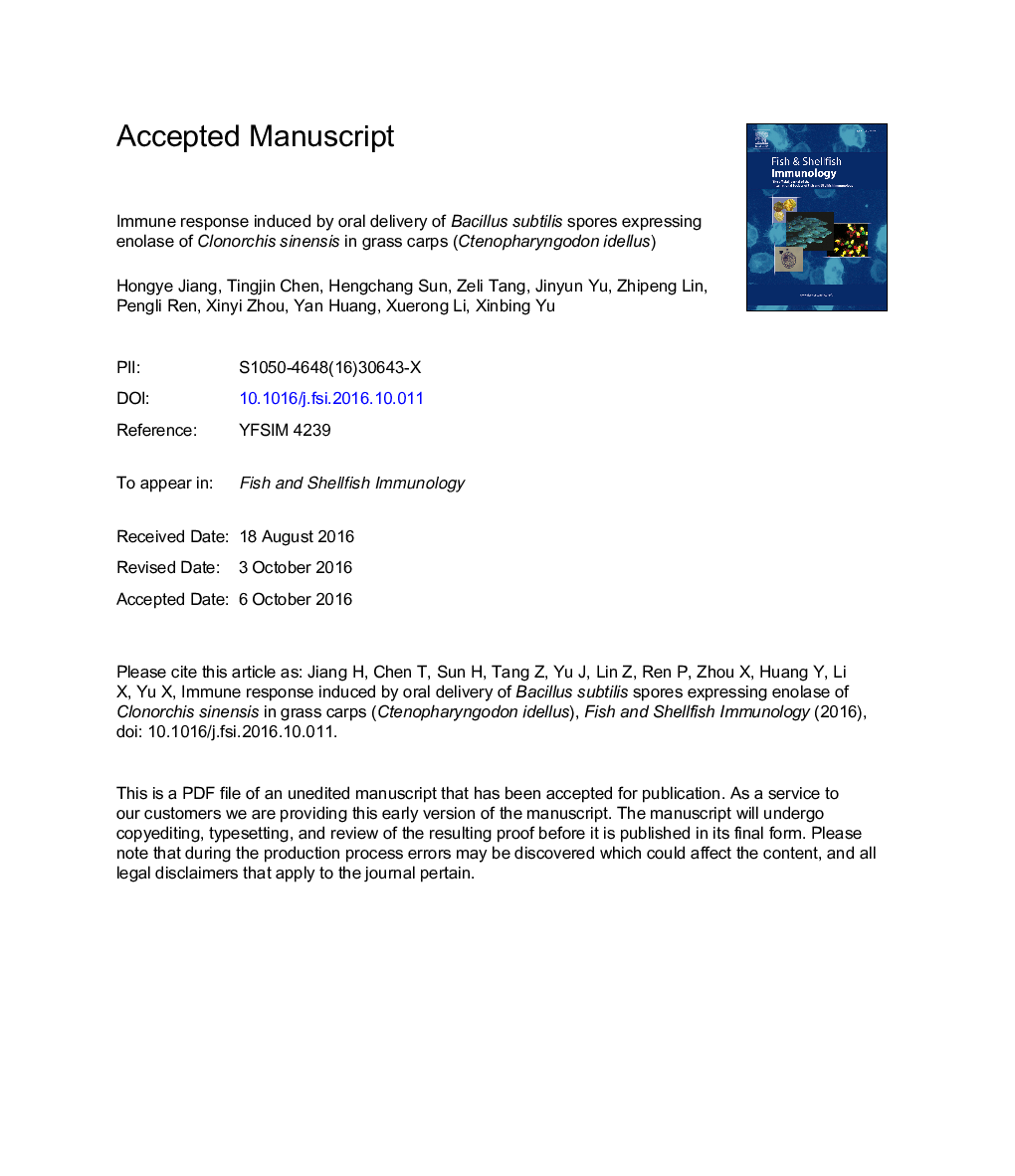| Article ID | Journal | Published Year | Pages | File Type |
|---|---|---|---|---|
| 5540989 | Fish & Shellfish Immunology | 2017 | 31 Pages |
Abstract
Clonorchiasis, caused by the consumption of raw or undercooked freshwater fish containing infective metacercariae of Clonorchis sinensisis (C.sinensis), remains a common public health problem. New effective prevention strategies are still urgent to control this food-borne infectious disease. The previous studies suggested Bacillus subtilis (B. subtilis) spores was an ideal vaccines delivery system, and the C.sinensis enolase (CsENO) was a potential vaccine candidate against clonorchiasis. In the current study, we detected CsENO-specific IgM levels by ELISA in sera, intestinal mucus and skin mucus in grass carps (Ctenopharyngodon idella) through oral administration with B. subtilis spores surface expressing CsENO. In addition, immune-related genes expression was also measured by qRT-PCR. Grass carps orally treated with B. subtilis spores or normal forages were used as controls. The results of ELISA manifested that specific IgM levels of grass carps in CsENO group in sera, intestine mucus and skin mucus almost significantly increased from week 4 post the first oral administration when compared to the two control groups. The levels of specific IgM reached its peak in intestine mucus firstly, then in sera, and last in skin mucus. qRT-PCR results showed that 5 immune-related genes expression had different degree of rising trend in CsENO group when compared to the two control groups. Our study demonstrated that orally administrated with B. subtilis spores expressing CsENO induced innate and adaptive immunity, systemic and local mucosal immunity, and humoral and cellular immunity. Our work may pave the way to clarify the exact mechanisms of protective efficacy elicited by B. subtilis spores expressing CsENO and provide new ideas for vaccine development against C. sinensis infection.
Keywords
Related Topics
Life Sciences
Agricultural and Biological Sciences
Aquatic Science
Authors
Hongye Jiang, Tingjin Chen, Hengchang Sun, Zeli Tang, Jinyun Yu, Zhipeng Lin, Pengli Ren, Xinyi Zhou, Yan Huang, Xuerong Li, Xinbing Yu,
